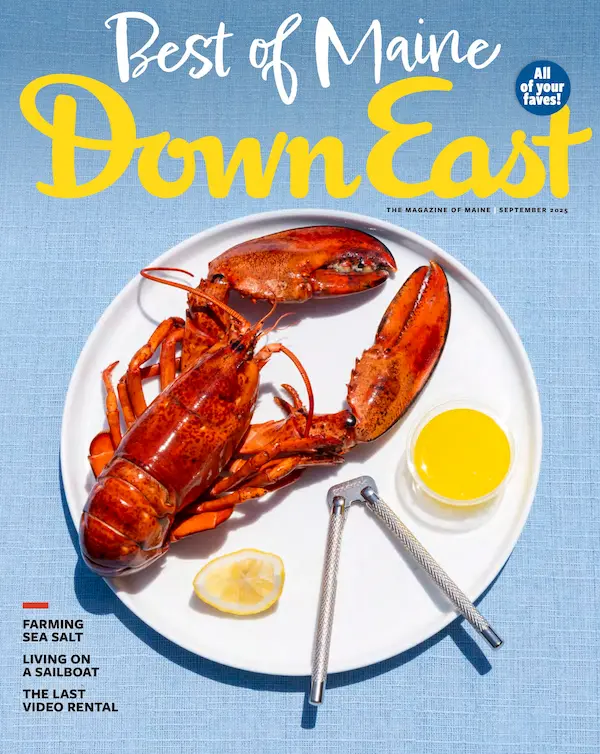By Will Grunewald
Photographed by Jason A. Frank
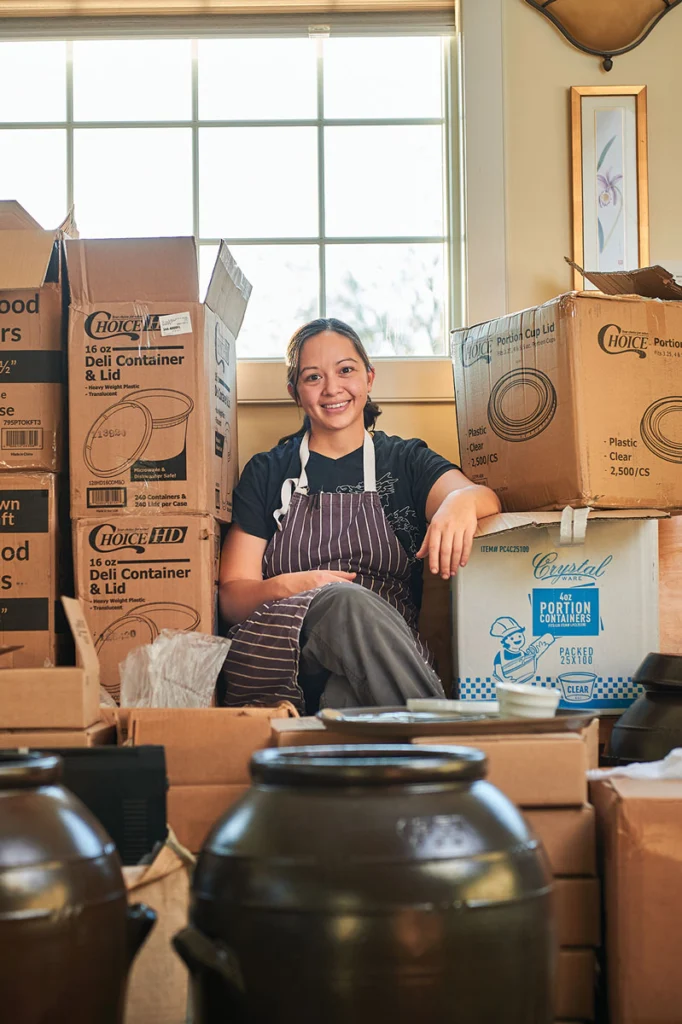
It’s no secret that the past nine months have been bad for restaurants everywhere, and the pandemic put a couple of personal favorites out of business in my neck of the woods. Bath’s eclectic, fun Salt Pine Social, which opened in 2016, called it quits in September, and I’m already feeling wistful about the tempura avocado with spicy remoulade. In October, Brunswick’s Henry and Marty, around since 1998, exited the scene too. It was the rare restaurant that was timeless but not outmoded, where classics like filet mignon and chicken piccata rubbed elbows with Korean-style short-rib tacos and Filipino-style egg rolls.
Mercifully, another of my close-to-home favorites, Brunswick’s Tao Yuan, is hanging in. Chef Cara Stadler owns the Asian-fusion restaurant, and since it opened in 2012, she’s been shortlisted five times for the James Beard Foundation’s Rising Star Chef award and been ballyhooed by such national publications as Food & Wine and Condé Nast Traveler. However, acclaim doesn’t exempt a restaurateur from pandemic economics, and several months ago, Stadler shuttered Portland’s Lio, her more recent foray into modern-European fine dining.
To save Tao Yuan, she did something counterintuitive. She closed it too. Or rather, she “closed” it. Tao Yuan’s typically intricate dishes — halibut folded into fava greens, set in frothy smoked-mussel sauce, and garnished with thin flakes of bonito, for instance — weren’t designed to survive boxing, bagging, and toting home. So over the first few months of Tao Yuan takeout — never offered prior to the pandemic — Stadler started tailoring the menu to the format, and in June, she rebranded the contactless-pickup operation Zao Ze Cafe.
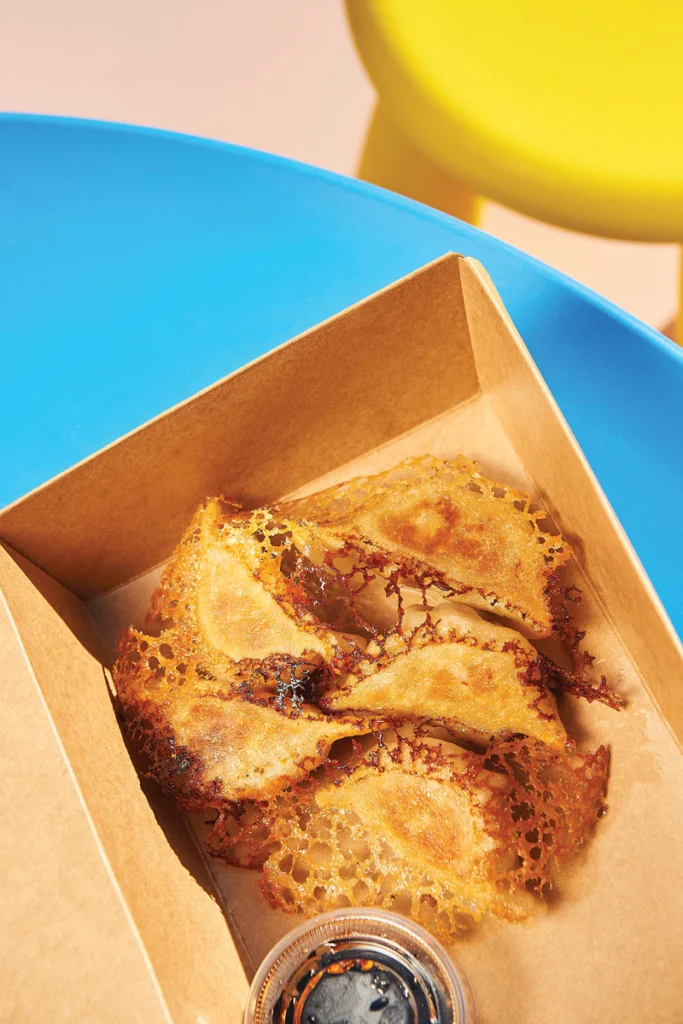
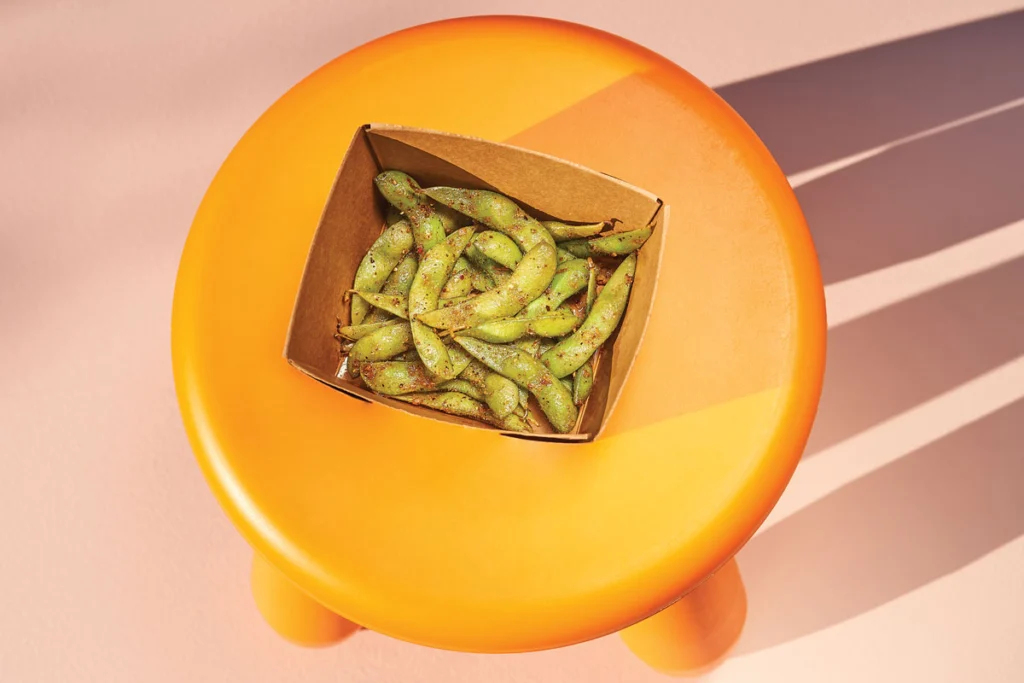
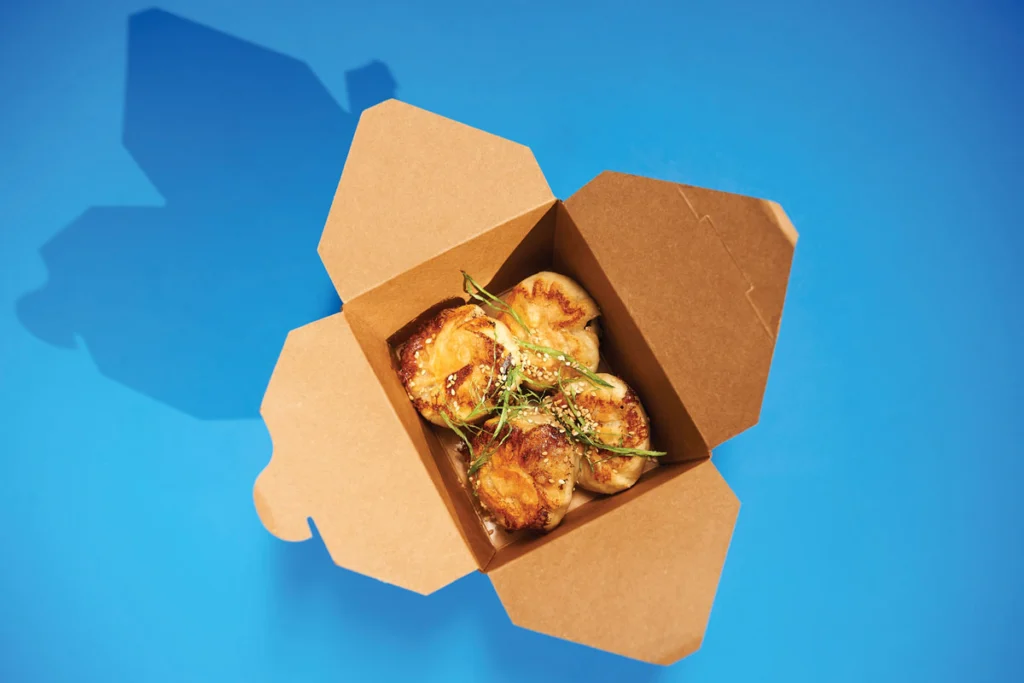
One new Zao Ze staple is lo mai gai, sticky rice, soy-marinated chicken, and hazelnuts cooked in a lotus-leaf wrap. More or less a light-brown brick, it isn’t pretty, but it’s delicious, and it’s indicative of Stadler’s takeout philosophy: flavor over form. Although the pandemic has mostly dried up alcohol sales and forced Stadler to cut front-of-house staff to almost zero, Zao Ze’s kitchen still bustles, serving up more food per night than Tao Yuan did a year ago. “It’s so weird to be doing food in huge waves but then it’s just gone,” Stadler says. “No interaction with customers, no feedback. It’s a weird reality.”
Before the pandemic, Stadler was already planning a business called Zao Ze for a neighboring building. It would be a café and grocery for, say, a bubble tea, a grab-and-go lunch, a jar of kimchee, and some frozen bao. Rou jia mo, often called the Chinese hamburger, on account of its popularity as handheld street food, is typical of the quick meals Stadler had in mind, a counterpoint to Tao Yuan’s finer things. Fillings rotate, but when I last had the rou jia mo, the thin, sliced bun contained Chinese broccoli, sweet-spicy mayo, and a heap of slow-cooked pork. Stadler says it had appeared a time or two at Tao Yuan, but that it’s more befitting Zao Ze. “Part of it is that Tao, for me, I don’t want to think of it as the equivalent of a burger place,” she explains. “Zao is a whole different vibe.”
Still, I haven’t had anything from Zao Ze that I wouldn’t gladly have encountered at a sit-down meal at Tao Yuan, from the Peking-spiced duck dumplings, with tender casings yielding to tender meat, to the naan that’s common among northwestern China’s Uyghur ethnic group, here served with hummus laced with pickled mustard greens.
Eventually, though, the line between Zao Ze and Tao Yuan will be clearer. Stadler is moving Zao Ze into its own space soon and will keep Tao Yuan closed through the winter. Then, she wants to restore Tao Yuan’s distinctly chefy ways. Last summer, she put tables outside, but the feel was informal. Once weather warms up again, she says, she wants to give the ad-hoc patio the classy, convivial ambiance of Tao Yuan’s dining room, complete with servers describing dishes in keen detail: “Really, we just want to get back to doing what we love.”




